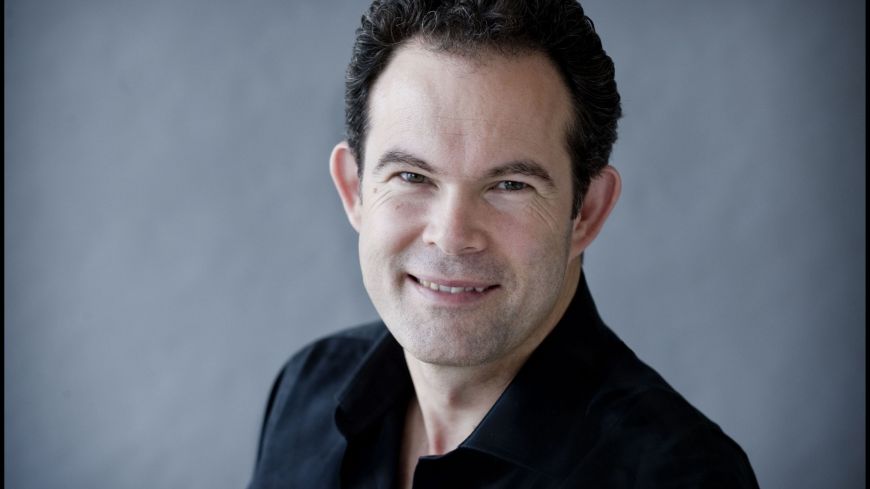
We were honoured to have Gerald Finley, the Canadian baritone, sing Peter Lieberson’s Songs of Love and Sorrow - for it was he who premiered them with the Boston Symphony Orchestra in March 2010.
Five years earlier Lieberson had written a song cycle for his wife based on sonnets by Pablo Neruda, the Nobel Prize-winning poet from Chile. Six months after the Neruda Songs was premiered his wife died. He was commissioned to write more but found it impossible until he met and married a former Buddhist nun Rinchen Lhamo. And so the Songs of Love and Sorrow encompass many of his beliefs and feelings, sorrow and joy. It is said that sometimes he felt he was writing a memorial for himself. He died in April 2011.
Frikki Walker’s pre-concert talk was the reading of an erudite paper on the concert’s two choral works. Clearly a specialist it was only afterwards when talking to him that I learned how involved he was in the evening’s preparations, and his association with many choral activities in and around Glasgow including Director of Music at St Mary’s Episcopal Cathedral.
After the interval the Dutch conductor Lawrence Renes, about to become chief conductor of the Royal Swedish Opera, came on stage with Gerald Finley again and with the soprano Kate Valentine. Behind the Orchestra were the 158 members of the RSNO Chorus, and forty of them have been in the Chorus for more than twenty years. Michael Bawtree was at the organ console at the top.
Brahms A German Requiem last a little over an hour in seven movements. Every time I hear it I think how splendid it would be at the funeral of someone really, really special. What makes it different is that it is not based on a Catholic Mass; Brahms took the passages from Luther’s Bible.
Gerald Finley sang the third movement which starts, Lord, teach me that I must have an end, and my life has a purpose, and I must go hence. The fourth movement is the well known How lovely are Thy dwelling places, O Lord of Hosts! Kate Valentine’s fifth - You now have sorrow; but I shall see you again and your heart shall rejoice was particularly moving. Whilst Gerald Finley was singing the penultimate - For we have here no continuing city - when it reached at the sound of the last trumpet I felt the conductor missed a chance to raise the trumpets to the expected momentary prominence.
The chorus director, Timothy Dean, deservedly was on stage for the final applause. It was the sort of concert I felt it a privilege to have attended.
Event: Friday 23 March 2012, 7.30pm.

